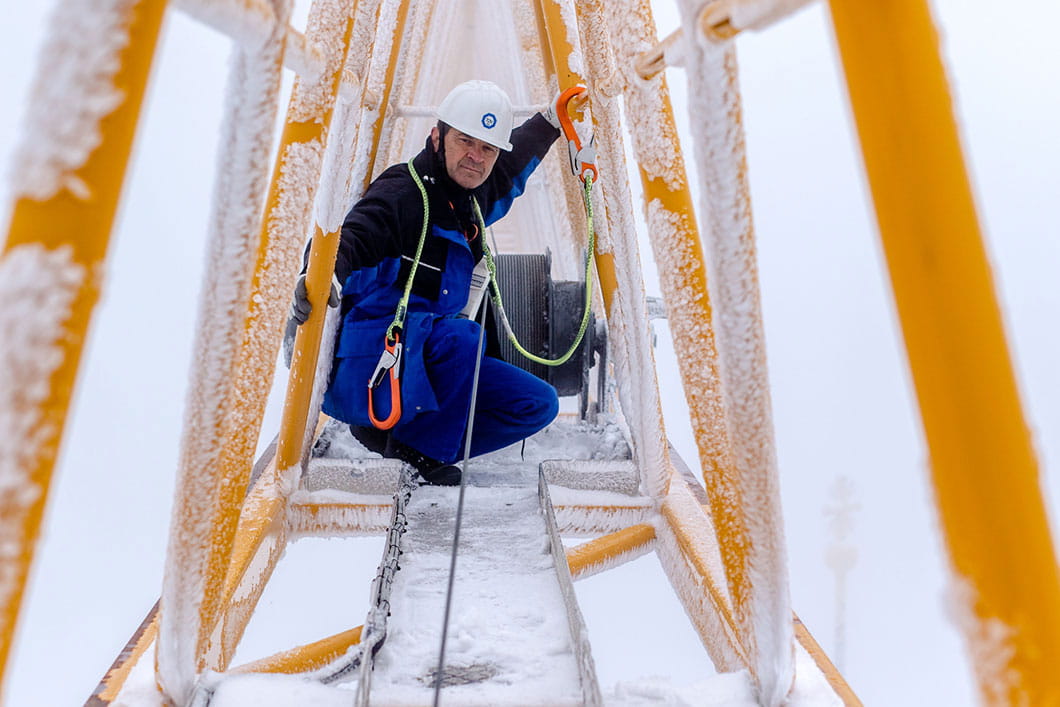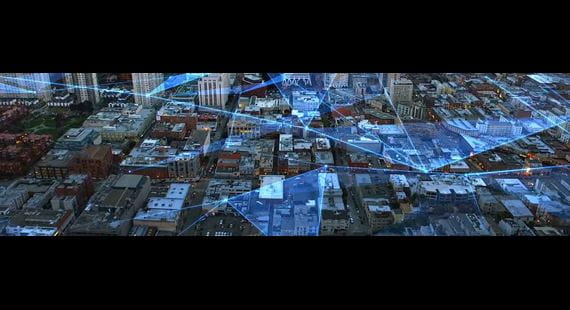
Accreditation the catalyst for sustainable urban development
Accreditation the catalyst for sustainable urban development
"Cities must be judged on their efforts to promote wellbeing – and held independently accountable."
Marc Grosskopf
Global Business Unit Manager, Building TIC, Real Estate & Infrastructure Division, TÜV SÜD
Friday, June 9, 2017
The world is rapidly becoming more and more urban. For most of us, that means bigger, more connected and sophisticated cities to live and work in. But how can residents and consumers be sure that every part of the city infrastructure is structurally sound? How can modern city-dwellers avoid taking safety, quality and sustainability issues for granted?
Fortunately, there is an established system in place enabling the pursuit of urbanisation goals safely, efficiently and sustainably.
June 9 is World Accreditation Day 2017, a global initiative established by leading accreditation bodies, the International Accreditation Forum (IAF) and the International Laboratory Accreditation Cooperation (ILAC). The initiative aims to promote the importance of accreditation in a range of industries, with the focus this year on how accreditation delivers confidence in the construction industry and the built environment.
Just like all other sectors, the construction and built sector is impacted by the globalisation of supply chains and rapid speed of the digital transformation. Infrastructure projects have become increasingly diverse, often requiring deployment of products and technologies from different countries.
Standards, conformity assessments and accreditation provide the tools necessary to support stakeholders in the sector in ensuring conformity to safety, quality and sustainability standards. Accreditation bodies assess the competence of organisations, such as TÜV SÜD, to conduct certification of infrastructure projects against relevant international standards.
Accreditation is key in ensuring that safety and quality standards are an integrated state of the art component from the beginning. Specifically, in the built environment, accredited conformity assessment plays a key role in supporting construction-based regulation efforts, environmental protection and public safety initiatives.
The increased use and acceptance of accredited testing and inspection data and results internationally by industry, governments, regulators and consumers reduces the need for conducting additional conformity assessments locally. This thus increases the efficiency of construction projects.
At the global level, accreditation plays a key role in enhancing global trade. For example, accreditation is referenced as a key measure to support trade through the removal of trade barriers in the Trans-Pacific Partnership agreement between 12 Pacific Rim countries.
A wide-ranging number of disciplines are being covered by accreditation as illustrated below in the diagram provided by ILAC as part of the International Accreditation Day campaign. For example, construction materials are being tested as per factors such as hardness, acoustics and air leakage. Periodic inspections are being carried out on Heating, Ventilation and Air-Conditioning (HVAC) system, lifts and escalators as well as pressure vessels to ensure performance and safety. Additionally, audits against Quality, Environmental, Occupational Health & Safety as well as Energy Management Systems ensure that processes and systems are set up to deliver a safe, working environment.
The ILAC works with local accreditation bodies across more than 100 countries to implement the system globally. For example, TÜV SÜD PSB recently became the first certification body to receive ISO 55001 accreditation from Singapore’s Accreditation Council. This asset management standard allows potential building and public infrastructure stakeholders to assess the profitability, risk and performance of structures.
With infrastructure accreditation, citizens, investors and regulators receive assurances on a range of matters, including: health and safety management, electrical safety, fire risks, waterproofing, noise management and environmental friendliness.


Elevators at the world’s tallest building, the Burj Khalifa, take people hundreds of metres up the gigantic tower in just a few seconds. These highly complex, software-controlled elevator systems rely on pioneering technology. TÜV SÜD takes steps to verify their structural safety.


From Munich in 1972 to Rio 2016, builders of new Olympic stadiums and villages have turned to TÜV SÜD for help in establishing premium sporting venues - as well as expanding existing metro networks to provide safe and effective transport.
Marc Grosskopf, Global Business Unit Manager, Building TIC, Real Estate & Infrastructure Division of TÜV SÜD, explains that things now move fast in the accreditation world. He says, “If we want to ensure that the cities of the future are sustainable, it’s critical that urban infrastructure and mobility solutions are resource-efficient – and environmentally friendly.”
Mr. Grosskopf notes that the speed of industry standard change has increased in recent years – and that companies like TÜV SÜD now play an increasingly important role. He says, “Cities should now be judged on their efforts to promote wellbeing. TÜV SÜD can provide support – gauging levels of wellbeing with independent inspections and certifications. This allows cities to be held responsible for their initiatives.”
And as more city-dwelling stakeholders start to make use of accreditation, positive ripple effects will be felt elsewhere. “Accreditation can deliver data for benchmarking efforts in collaboration with other cities,” says Mr. Grosskopf. “Using accreditation as part of the inter-city benchmarking process provides stakeholders with greater investment security.”
Infrastructure and real estate development is on the rise everywhere, and shows no signs of slowing down. In China alone, the urbanisation rate hit the 57 percent mark in 2016, while America’s President Donald Trump is set to unveil a US$1 trillion plan to overhaul the country’s infrastructure.
As the public, governments and industries build a sustainable urban future, the importance of accreditation in the infrastructure and real estate sectors has risen to unprecedented heights. With accreditation, there is support for safety and security in an era of surveillance and sensors within future cities. Building projects that claim to be sustainable can prove that their promises are independently substantiated. Thanks to the well-established system of accreditation, standards and conformity assessments, safe and sustainable solutions are now at hand for urbanites everywhere.


How can we achieve our economic objectives in a sustainable approach?
Learn more

Site Selector
Global
Americas
Asia
Europe
Middle East and Africa